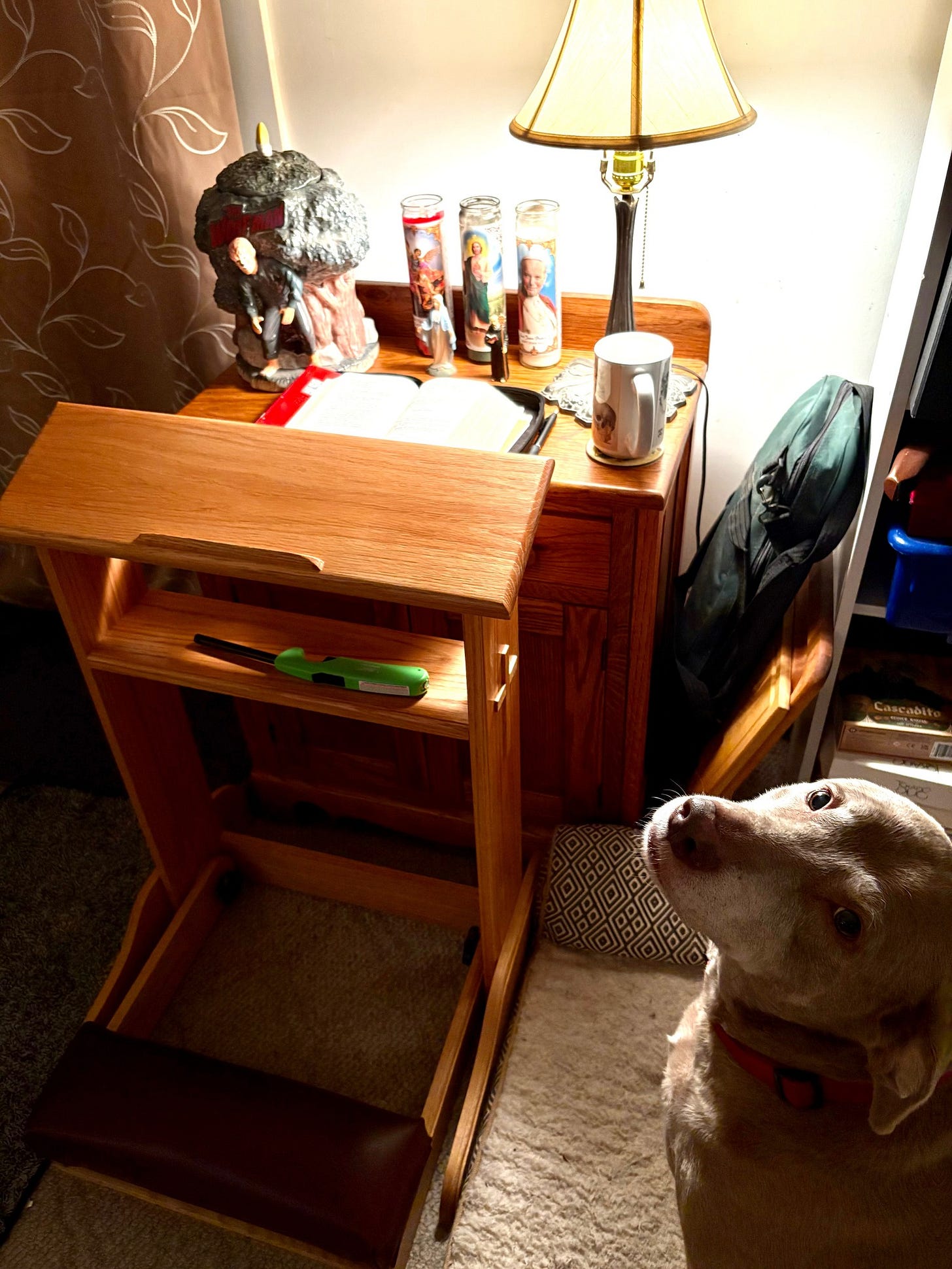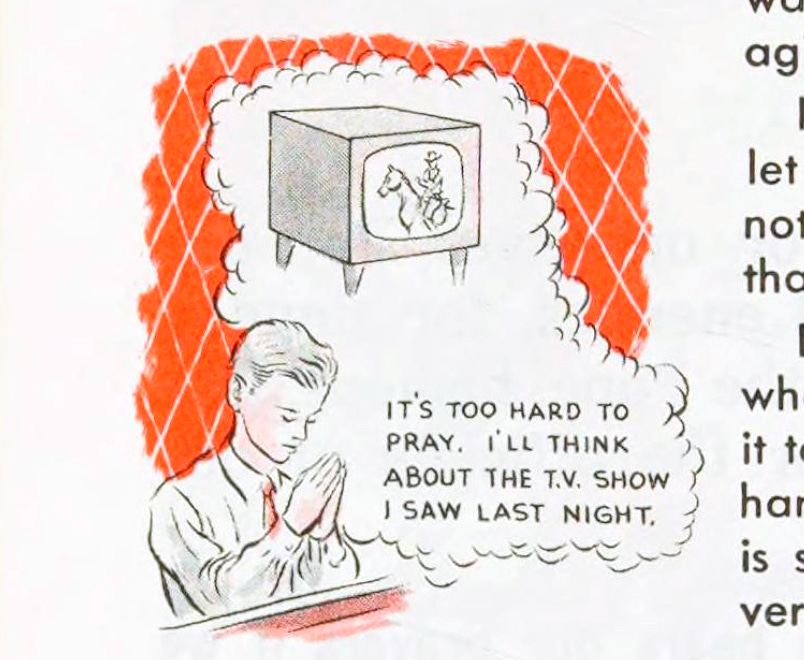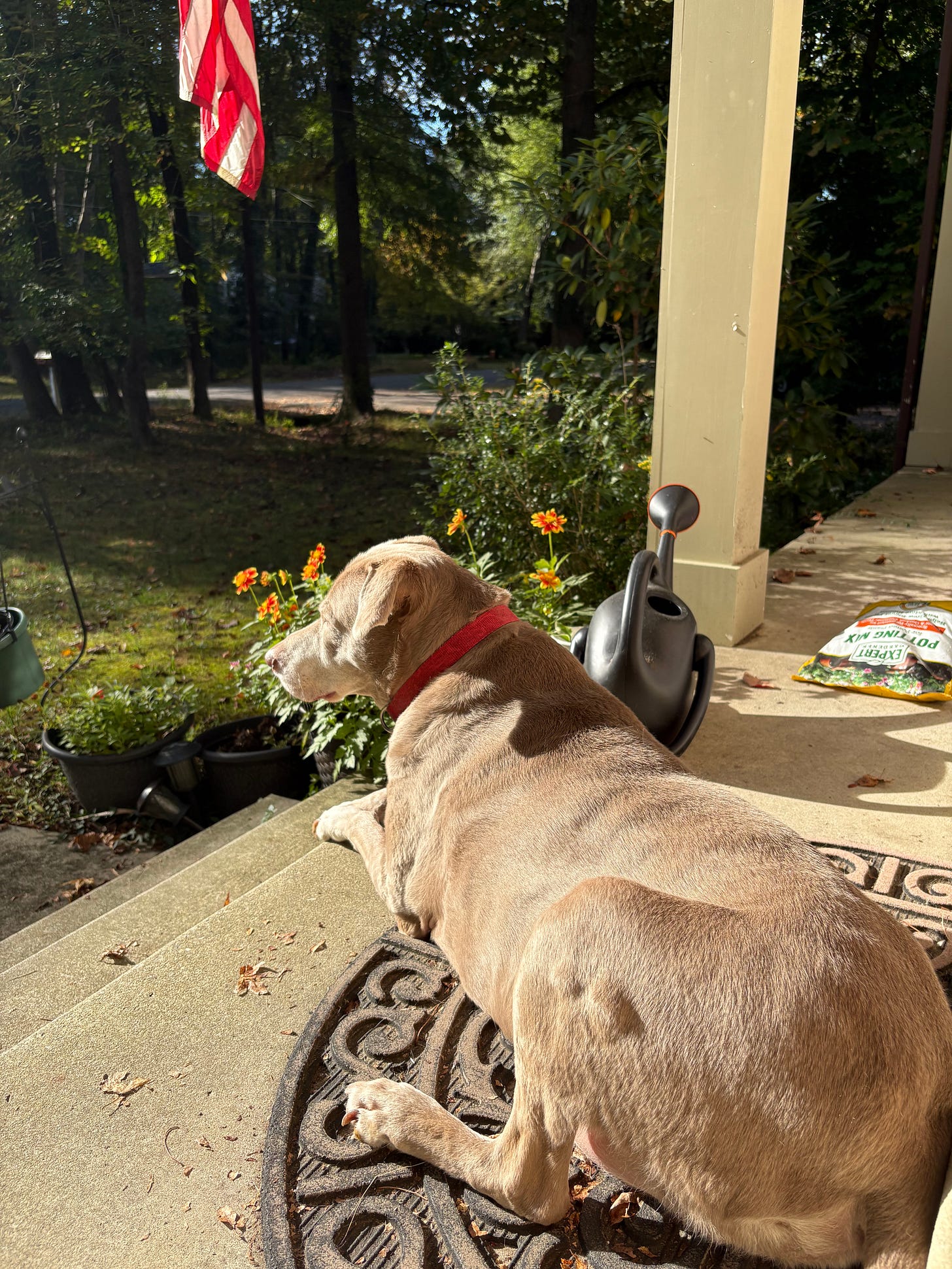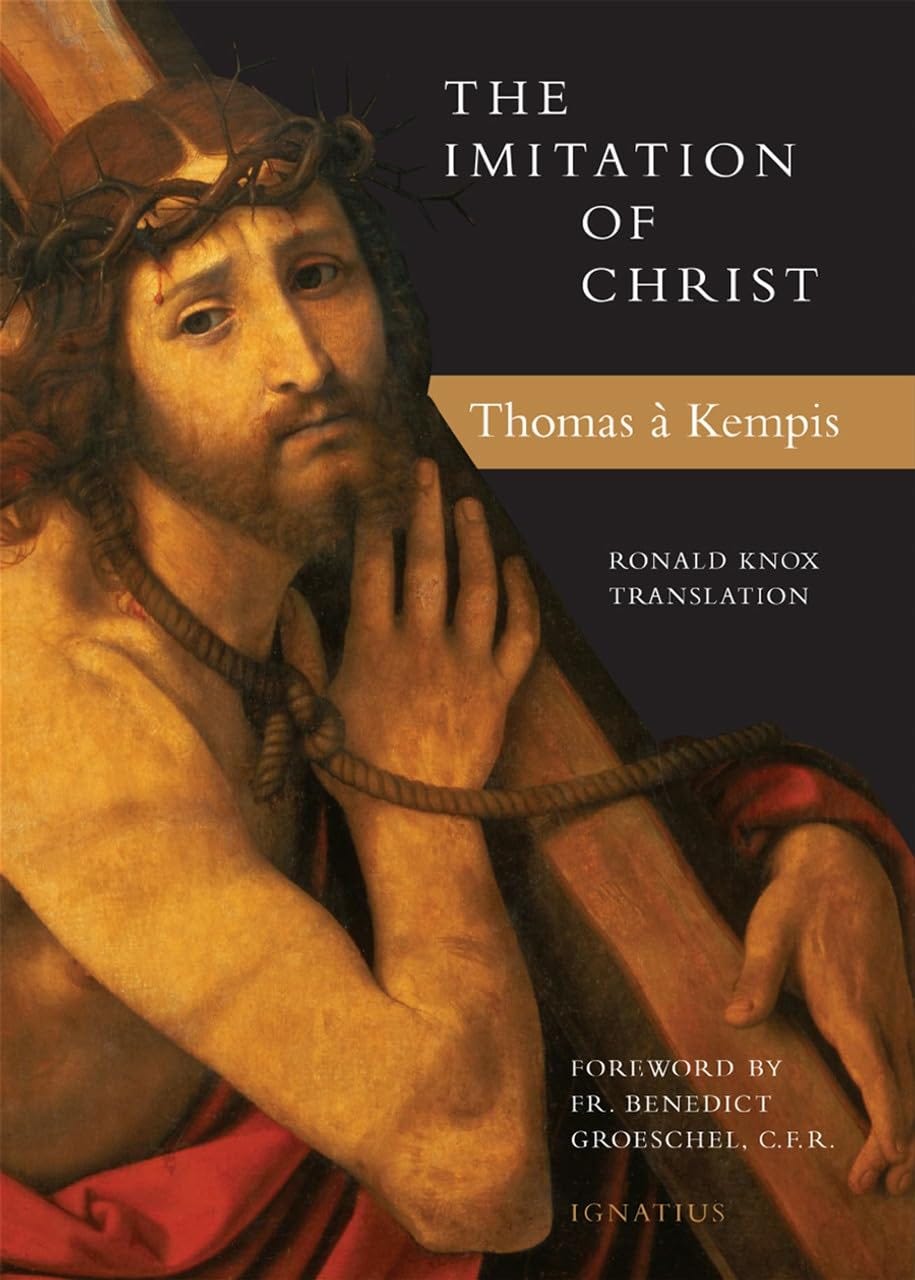My Prayer Routine: How It's Going
Eh, pretty good, I guess. Could be better, y'know? Part the Second.
See Part 1 over yonder.
The goal of prayer is to create a place where we can encounter God. If something is not fostering that, then it’s not a discipline: it’s an anchor. I like the structure of the prayer day and find that without it, I would not make time to break from other pursuits (work or leisure) and sit down and focus. I believe most people need a habit, a discipline, a pattern of behavior to build upon.
I cannot stress this enough: the goal is not to tick off the boxes and get a certain amount done each day. That’s how you establish a routine, but not how you live out a routine once it’s established. If you settle down to Lauds and a moment or verse brings you into deep contemplation so that you run out of time and don’t finish every prayer for the day before another task demands my attention, then the prayer of that hour has still been accomplished. We are not servants of the Divine Office: we are servants of the living God. If God calls, nswer.
The Divine Office is Liturgy, and clergy has an obligation to pray not only for ourselves but for the world. I will make the time to finish even if I get lost in contemplation during the process. As a freelancer, my time is fairly flexible. If you are not clergy, then the office is a devotional, and you may pray as much or a little as you like. You will find rigorists online saying otherwise. Do not listen to these people.

I have a prie-dieu in my house courtesy of the St. Vincent de Paul thrift shop at my parish, where someone dropped off one in mint condition. I’m still looking for the best place for it, but I try to do at least my morning prayers kneeling there, and if I have special intentions I may light one of the cheap votives I get from the supermarket. I have an unfortunate nostalgia for their terrible art. If the day is nice, I try to do the devotions outside.
A number of spiritual practices can take on a life of their own, in particular meditation, contemplation, lectio, and the Jesus Prayer. Each of these has their own life and inner workings. A person can spend a lifetime plumbing the richness of the Jesus Prayer alone—Lord, have mercy on me, a sinner, or some variation thereof—or of the Rosary, or Carmelite contemplation.
Your personality, life situation, challenges, and problems may cause one devotion or another to rise to prominence. A speeding and cluttered mind will benefit from consistent work with the Jesus Prayer. Someone seeking deeper peace and connection to the Lord and His Mother will find riches in the Rosary. Spiritual practices are particular to the practitioner.
The Day
The basic frame of the day looks something like this:
Waking
- St. Michael Prayer
- Psalm 67 from memory as a general invitatory for the day, usually with “This is the day the Lord has made etc” as the antiphon.
- Prayer for all Benedictines living and dead
Morning
- Readings of the Day
- Lauds
Noon
- Angelus
Midday
- Day Hour, plus something else
Evening
- Vespers, plus something else
Bedtime
- Compline
- One-page devotionals
Moveable Devotions
These are usually attached to midday or evening:
- Office of Readings
- Section of or commentary on the Rule
- Divine Intimacy or Augustine’s Press Bible in a Year. Divine Intimacy is a treasure of Carmelite wisdom, while the Bible in a Year features OT/Wisdom/NT readings broken up to read in a year, using the ESV-CE, which is my current preferred text.
Devotionals
These are petty fluid, but some I return to are:
- Michael Casey’s work, most recently The Longest Psalm, a line-by-line meditation on Psalm 119. Benedictine Wisdom
- Newman’s Prayers Verses Devotions. An indispensable devotional featuring the devotions of Lancelot Andrewes in Newman’s translation, meditations, litanties, poetry, and more.
- The Imitation of Christ (Knox Translation). The little hardcover from Ignatius with an introduction with Fr. Groeschell is my favorite in both format and language. Never stop reading it.
- I keep those little Catholic Book Publishing volumes or other day-by-day devotionals in the small rooms or by the bedside. They have little half-page quotes (often mis-quotes) or devotions.
In addition, I keep a notebook of prayer intentions and people who have requested prayers, as well as verses for meditation.
I make an effort to leave space and silence in the midst of all that. My wife and I try to do complien together and pray intentions for the day. With compline, there’s always a brief examination of conscience.
That’s about two hours of prayer and meditation per day. I do not always have all of it, but I try. Divine Intimacy and the Bible in a Year may get skipped, and I will use the scripture passage from the readings of the office for my lectio and meditation.
Yours Will Be Different
There’s a risk in sharing this that I will come off as a pious version of a gym rat saying “Bro, do you even lift?”
I don’t mean that at all. When I was beginning, I searched and searched for good practical information on prayer, building habits, talking to God, listening to God, finding the right rhythms in the day for my spiritual life to take some shape. What I describe above is the form it took after many years. Yours will take its own form.
Mine is somewhat shaped by my obligations, but my obligations were partly chosen because I felt they deepened my spiritual life. I didn’t become an Oblate because I was very good any of this: I became one because I was very bad at it. I did it to find the structure that would help me grow.
It’s a personal structure and some of its particulars may change. I’ve been spending more time trying to deepen my understanding of Carmelite spirituality, and that may change the way I approach things. The Jesus Prayer comes and goes throughout the day as needs be. Brother Lawrence’s Practice of the Presence of God is always there.
One thing missing is the rosary. I have very little feeling for it, which is ironic given that I’ve been the spiritual director of the Legion of Mary and Holy Rosary Society. I enjoy praying it in groups with the Society or the Knights, but left to myself, I would rather spend that time in lectio or contemplation. It is a beautiful and valuable devotion, and if that is the core on which you build your daily prayer life, it is solid rock indeed. It is not, however, the rock I built upon.
I saw some Catholic “influencer” once claim that if you don’t pray the rosary every day you’re “not on the team.” I hate that kind of posturing. The rosary is a wonderful gift, but if it’s not a routine part of your devotional life, that’s fine. Don’t be bullied into doing things because people say they’re what you should do. That’s the way you get fed up and discouraged.
I know that the Psalter leaves many people absolutely cold, and that’s fine. The church is rich in spiritual tradition and disciplines, so you can search them until you find the one that provides that shiver of the Spirit as though God himself just brushed against your soul. I get it every time I sit with a breviary. I know others who experience the same thing when they take out a rosary or do a litany. We all respond differently, and that’s okay.
I’m planning to explore a lot of these practices a bit deeper, but I wanted to start with a kind of pulse-check and personal list, just as a sample of how one person does it.
Even the simplest prayer is beloved of God. I don’t fill the air with a cloud of words because he wants it, but because I need it. Always remember that the powerful Jesus Prayer was the prayer of the Publican, who went away justified.









Ah yes. I’ve struggles with this for a long while. I go back and forth on becoming a Benedictine oblate. My fear is that I would fail at the routine of hourly readings. Please pray for me that I would know if this is something I should undertake. I love Benedictine spirituality so much.